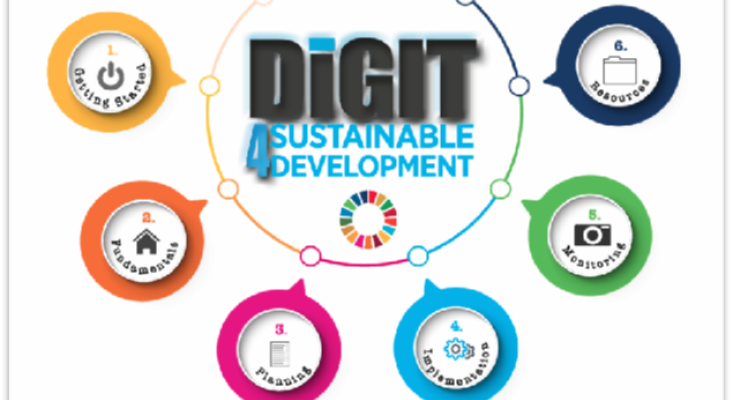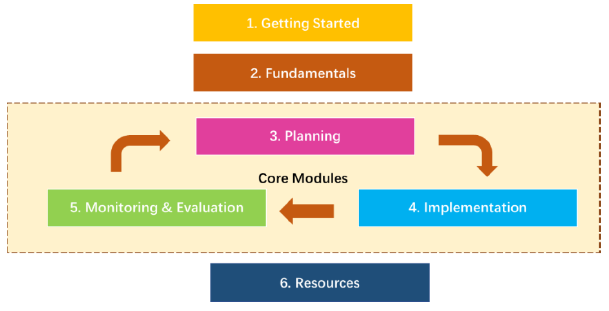| Related SDGs: SDG 16, 17 Keywords: Digital Government, Sustainable Development, E-Government, E-Participation Language: English | |
Learning Objectives The Toolkit aims to help targeted countries develop digital government initiatives to support selected SDGs or targets. It offers best practices on digital government initiatives globally as well as case studies. It also incorporates the findings and recommendations proposed in past editions of the UN E-Government Survey. The Toolkit is comprised of 6 modules. Module 1 provides a general background on why and how the implementation toolkit was developed, importance of digital governance and how it can help achieve SDGs. Module 2 offers a general overview of the sustainable development agenda and how digital governance is linked to the SDGs. Apart from general digital government concepts, the e-government survey is also explained. Furthermore, the module includes information on the relevance of data and how we can strive towards e-participation and digital inclusion. Module 3 focuses on methods to identify target and priority areas and how they can be aligned to the sustainable development agenda. It also covers data, policy and implementation gaps and why it is necessary to identify them. Module 4 is concerned with the implementation phase of ICTs. It includes the explanation and best practices on the use of the implementation canvas. The canvas serves, among others, as a snapshot on the current state of play and provides a proper overview on what aspects still need further attention. Module 5 includes measures for monitoring and reviewing both in the planning as well as the implementation phase. It covers tracking methods for measuring the implementation of the policies or activities and evaluation and audit methods for SDG implementation. Module 6 includes various case studies on best practices of countries, both on LDCs as well as more developed countries, that have used ICTs to enhance the SDG targets. |  |
Content and Structure Syllabus | |
| Module 1: Getting Started Module 1.1: About DiGIT4SD Module 1.2: User Manual Module 2: Fundamentals Module 2.1. Sustainable Development Goals (SDGs) Module 2.2. E-Government Fundamentals Module 2.3. E-Government Survey Module 2.4. Data Module 2.5. E-Participation Module 3: Planning Module 3.1. Identification of Target Areas Module 3.2. Stakeholders & Partnerships Module 3.3. Performance Indicators Module 4: Implementation Module 4.1. Implementation Frameworks Module 4.2. Integration and interoperability Module 4.3. Implementation at Local Level Module 5: Monitoring and Evaluation Module 5.1. M&E Frameworks Module 5.2. M&E Reporting, Dashboards and Trackers Module 6: Resources Module 6.1. Case Studies |
|
Targeted Audience Additional Information | |
 欢迎来到联合国,您的世界!
欢迎来到联合国,您的世界!
